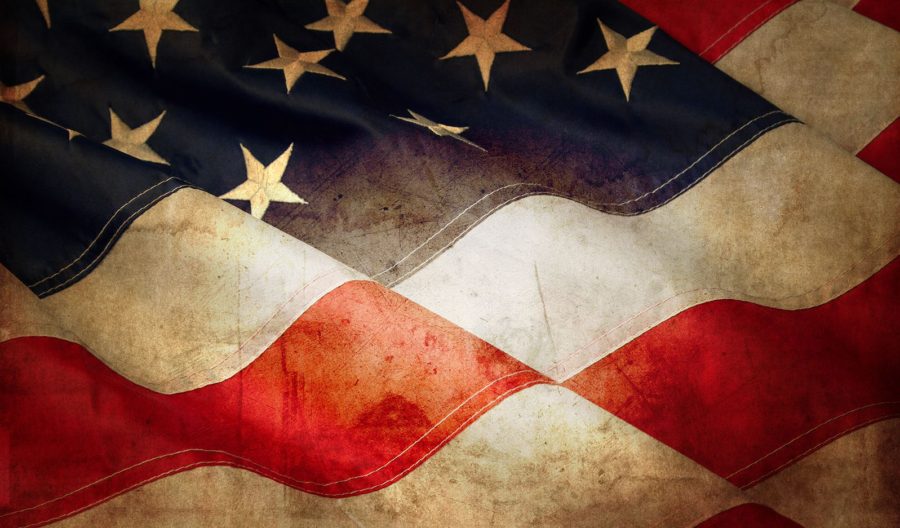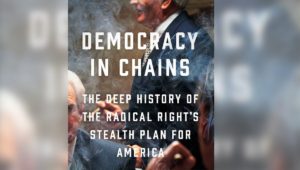Anu Partanen’s book The Nordic Theory of Everything chronicles her philosophical evolution as she gained a deeper understanding of the discrepancy between American imagination and American reality after moving to New York from Finland, where she was born and raised. This article is not a stylistic breakdown or a deep analytical review. These are just some of my favorite quotes from the book and my initial feelings about them.
✺
“When it comes to family and medical leave for workers, the United States is utterly out of line with contemporary norms of modern nations. While Nordic citizens often don’t realize how good they have it, Americans seem not to realize how terribly they are being treated.”
“Many immigrants come to America from countries that don’t ensure basic freedoms the way the United States does, such as the freedom of speech. At the same time it’s almost as if Americans don’t realize that there are many, many other nations in the world where citizens enjoy exactly the same freedoms that Americans do, and where not a much fuss is made about them. Moreover, American’s don’t seem to realize that there are citizens in other parts of the world, like the Nordic region, who have acquired other kinds of freedoms that Americans lack.”
America won a war, grew an impressive economy and an impressive middle class, and got morally pigheaded as a result. Our obsession with the peak viability of Theodore Cleaver’s subjective position in society has blinded us to advancements that other humans have made since then on those very same social principles. Our leaders stopped learning from other nations 70 years ago. We’re paying the costs today.
✺
“The benefits that American single parents receive are actually downright pathetic compared with the benefits they receive in most advanced nations, including Nordic countries. When Legal Momentum, a women’s advocacy group, looked at single mothers in seventeen high-income nations, American single mothers came out the worst off. They had the highest poverty rate, were most likely to lack health-care coverage, got the least income support, and could only dream of the parental leaves, sick days, and public day-care services that single parents in other countries can rely on.”
Our Every-Person-For-Themselves mentality is doing us much more harm than good. There’s a baby in that tub but the amount of water around it is socially unsustainable. We have to be more nationally minded, i.e. Americans need to trust other Americans much more than we do. I’m a proponent for National Healthcare and Universal Basic Income. Today it seems very American to praise the risk of destitution as ultimately beneficial for our countrymen. I disagree. I believe the security that comes with the absence of the risk of destitution is the psychological that boon we’re looking for.
✺
“Yet, true to their American upbringing, the are quick to blame themselves for not managing to build a more stable life. They have nothing to compare their American existence with, and they don’t realize how out-of-date their own society’s structures are for the challenges they face.“
This quote comes from a section about marriage and romantic commitment among the American common class and I feel that the sentiment of this quote on it’s own applies to that topic and even more broadly. We tend to think that our way of life is the best way of life because many of us are completely immersed, and all of us partially immersed, in American propaganda for our whole lives. Fireworks, hot dogs, and infinite debt. When it comes to healthcare and poverty, America is no one’s role model.
✺
“Finns still see the basic goal of public education as preparing children not for standardized tests, not for college applications, and not for specific jobs or industries, but more generally for life, although a life that takes place in the twenty-first century. Schools aim to graduate well-rounded human beings who are creative as well as technically skilled. To this end, physical education, arts, and crafts remain crucial elements of the permanent curriculum, alongside more academic subjects.”
I thought this passage was important because the American understanding of human motivation has become engulfed by the profit motive. Profit often seems to be the only motivation we understand. I hope, hope, hope we can get past that flawed understand within my lifetime. A better understanding of human motivation is this: ‘We spawned on a floating orb and we don’t know why. You may wonder why, you may not. Either way, survive.’ Art, philosophy, religion, love, conversation, these are the phenomena that make life worth living. I know many people who aren’t driven by profit. They only make as much money as is necessary to provide for their families. They don’t want billions. Our current economic philosophy puts little value on those Common motivations. That’s a problem for this generation of Americans and the next.
✺
“It didn’t matter that for the time being I was perfectly healthy. Each irritation in my throat meant pneumonia, and every twinge of my knee or elbow signified surgery. A lump on my neck meant cancer. And everything meant insurmountable bills. … By American standards I was still relatively privileged. But by Nordic standards, and by the standards of most other advanced nations, I was in fact in actual danger of becoming destitute.”
I once rented a bedroom from a wonderful woman in the San Fernando valley. One day she collapsed on the kitchen floor. Rather than call an ambulance, she requested only that her sister and I get her a glass of water and help her to her bed. I know she didn’t ask for the ambulance ONLY because she couldn’t afford an ambulance ride and a hospital visit. Our healthcare system is barbaric. Some amount of physical illness in the population cannot be avoided. Financial ruin for the common person when they get sick is a cruel option we’re choosing arbitrarily.
✺
“Today Americans still feel that by and large, every individual is responsible for constructing his or her own fate — the classic pursuit of happiness — and there is still much debate in the United States about the extent to which, if at all, an individual’s success or failure is also shaped by accidents of birth. Nordic people have long ago moved beyond this debate.”
“And when it comes to buying and selling health care, when a buyer in any transaction is desperate — as most of us are when we need medical treatment — the seller has a huge unfair advantage, and this can distort an otherwise rational free market. In holding on to its private, profit-driven model, the United States is way behind the times, and average American citizens are increasingly stuck with the enormous price tag for this completely outdated and unconscionably unfair system.”
These passages emphasize our stunted political thinking. This makes me think that a population the size of ours gives us an opportunity to spread medical costs very widely so that the individuals feel the smallest amount of financial pressure possible. We must consider which healthcare costs should be borne at the national level and which at the individual level. I currently support the position that individual co-pays should be capped at a few thousand dollars a year and the rest should be covered by a national insurance plan. I’m a lay, as most voters are, in terms of healthcare specifics but I think something more like the Nordic model and less like ours would be generally better for our country.
✺
“Individualism is one of the great foundations of Western culture. But unless society secures personal independence and basic security for the individual, it can lead to disaffection, anxiety, and chaos. For a long time now the United States has been turning toward its Wild West past, while the Nordic nations have been taking individualism in the logical direction of further progress, and into the future.”
The best way to incentivize people to be individuals and to take risks to be show them, beyond any doubt, that if they fail, they have a soft place to land. This is the privilege on which children born into adequate generational wealth operate at a basic level. If they start and fail 5 businesses in 10 years and go a little bit deeper into debt every time, they know that they’ll never go hungry because there’s money in their family somewhere. I’m a black American and I personally enjoy this privilege twofold. Still, I don’t want to live at my mother’s house if I can avoid it. I WANT to stand on my own two feet and I’m working hard to ensure that reality. I also believe my neighbor wants similar goals. I do know people who are lazy to no end but they don’t represent anything like a majority as far as I can see. It seems that 80% of American citizens rather go out and work hard than stay home and do nothing because that’s what’s IN them to do not because that’s what society tells them they have to do. I believe in America and I believe in my fellow Americans. The refrain “We can’t have basic income or national healthcare because people will squander and abuse it.” is deeply unpatriotic. When did Americans stop believing in each other? How do we restart that train?
Ms. Partanen describes her journey to American citizenship in eloquent, straightforward terms. My reaction here has been necessarily limited to what I care to jot down in an afternoon, mostly for my own edification. If you’re curious to know what her full argument is in context, buy the book. I recommend it.



